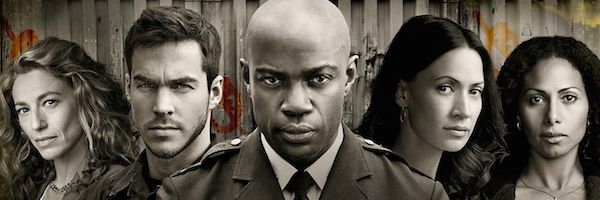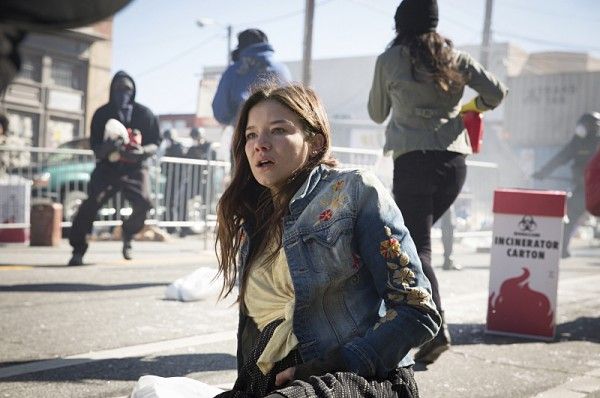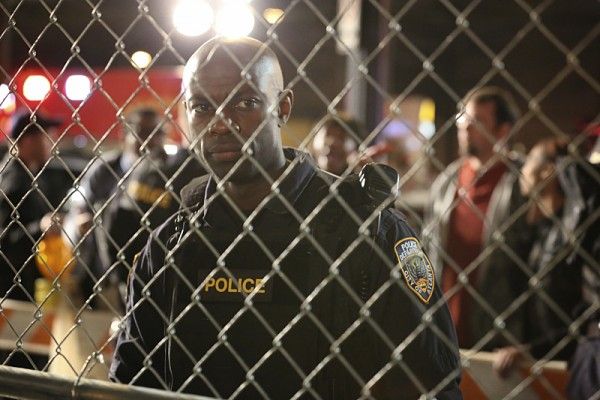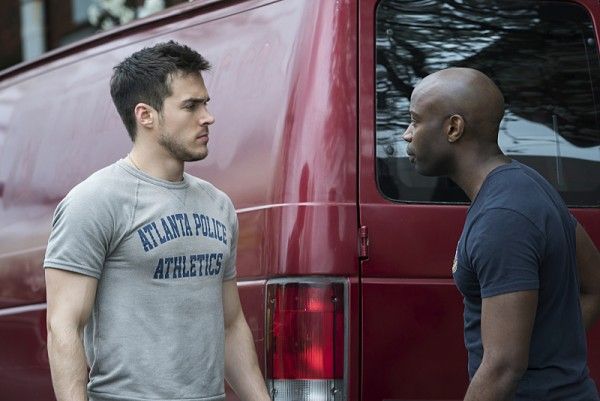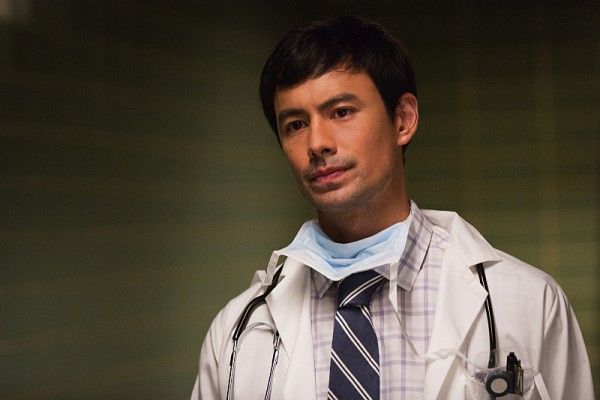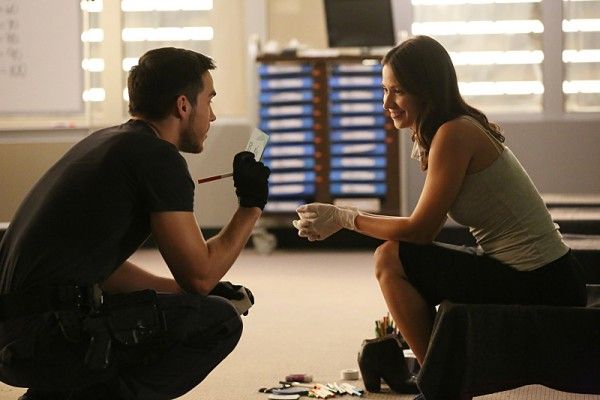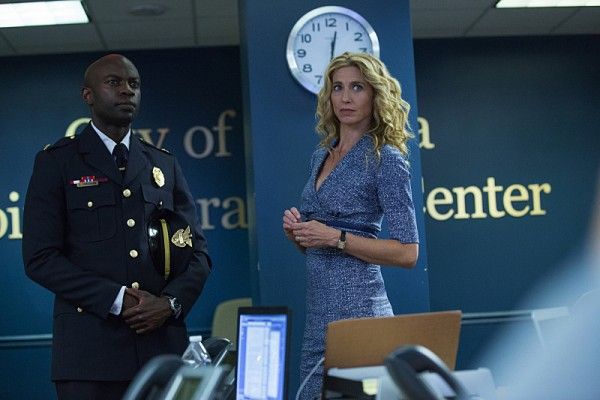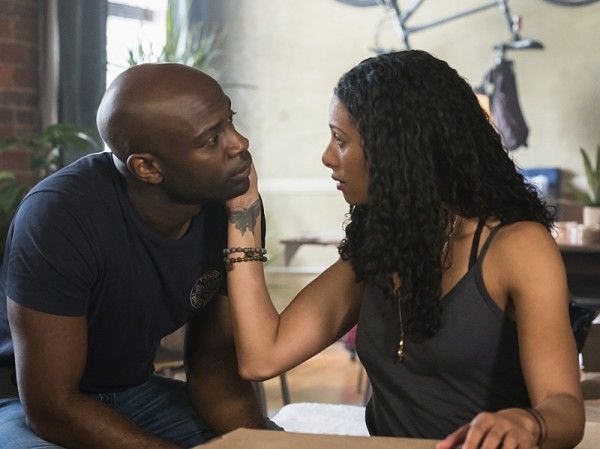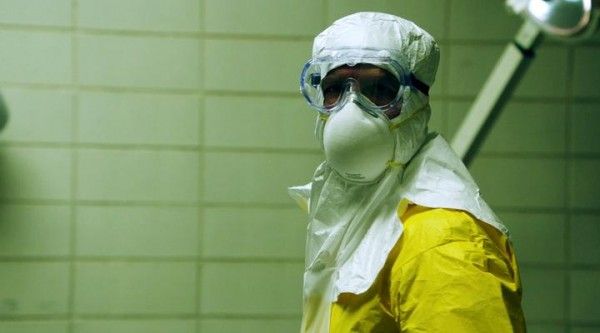From executive producer Julie Plec (The Vampire Diaries, The Originals), The CW series Containment shows what can happen when a mysterious and deadly epidemic breaks out. When a vast urban quarantine is quickly enforced and loved ones are torn apart, it forces those stuck on the inside to fight for their lives while local and federal officials desperately search for a cure, and the fact that something doesn't add up in the official story being told quickly unfolds.
During this exclusive interview with Collider, showrunners/executive producers Matt Corman and Chris Ord talked about turning the Belgian series Cordon into an American series, how they decided what they wanted to carry over from the original series and where they wanted to diverge, wanting to represent society with their cast and characters, making sure the story always felt human and possible, imbuing the show with hope, finding a cure for the virus, and the creative freedom they’ve had in developing the show. Be aware that there are some spoilers.
Collider: When you watched the Belgian series, did you immediately see rich material there that you knew would translate to an American series?
CHRIS ORD: When we saw the Belgian series, and then going forward with this series, it was such rich material. When we would go in the writers’ room with the other writers, there was never a shortage of things to talk about or angles to discuss. I think that made for very satisfying and rich storytelling, which is really fun to do.
Did you just take inspiration from the original series, or did you want to take some things directly from it?
MATT CORMAN: When there’s a format, you have to make certain decisions about what to honor and what to take, and then where you want to diverge. Even within the pilot, Julie [Plec] made the decision to introduce some new characters that rippled forward. The three of us – Julie, Chris and myself – sat down before the other writers came and talked about the Belgian series and some of the key things that we really liked, and then some of the areas we were going to have to create. What it does do is give you proof of concept. You know that it’s a good arena for a show. But I think it can be a mistake to be too faithful to it because it’s its own thing. Belgian has its own society that’s very different from America. And to be honest, the Belgian series is really, really dark, in a way that doesn’t allow the audience in fully.
ORD: Fortunately, our tastes aligned with Julie’s, in terms of what we wanted from the American version of this series. There were certainly things that became self-evident, in watching the Belgian series, that we wanted to do and that we wanted to stay away from. And then, as you isolate those things, you can put together the season. Then, you can let the characters determine where it goes. We knew the actors that were going to be playing the characters because the pilot had been shot, so we really tried to tailor it to those people.
You have a very diverse cast on this show, not just with what the actors look like, but also with the backgrounds and jobs of the characters. Was that something you intentionally set out to do?
CORMAN: The idea was to represent society as it really is and show a broad swath of people from different socio-economic backgrounds, ages and races. That’s what America looks like and that’s what Atlanta looks like, so it’s good to show that.
ORD: It was very fortunate that Julie had her other two shows in Atlanta because it’s a perfect city in America to adapt this to. It just so happened that she had two other shows there, so it was a perfect serendipity of production and content.
Was it also important to you to explore something that feels so human and so possible?
CORMAN: I think it was. We always started from the concept of, what’s real and what could happen, and then try to draw the story from that. Thankfully, in talking to various experts, it emerged that the truth was just as scary as anything we could come up with. This taps into a very real concern. People are constantly concerned about getting really, really sick. You see these things in the news, all the time. It just seems to be out in the zeitgeist. There’s a hyper-awareness of the fact that the world is a lot smaller and these bugs can leap-frog from country to country. Stuff that we never thought about when we were kids is potentially here.
ORD: Hopefully, it will stimulate and interesting conversation with viewers, in terms of what would happen, if this did come to America. What would my city do? What would I do? What would I want from my government? What would I want from my elected officials? It is very rich territory, in terms of talking about it. It brings up a lot of things you don’t think about every day, but that are very real and that you might have to think about.
When something like this happens so quickly, it’s more about looking for a way to stall the inevitable before even trying to find a cure. Will we have some sense of hope that maybe someone can survive all of this?
ORD: That’s one thing that Matt and I, and Julie, wanted to do, imbuing the show with a decent amount of hope. We’re all hopeful and optimistic people, and we wanted that humanity and heart. At the end of the day, what’s really satisfying is the triumph of the human spirit and people’s ability to withstand the storm, and ideally rise within that storm and show a side of themselves that they didn’t know they had. That’s when I feel the show really works.
This show doesn’t have obvious heroes. They’re a bit more reluctant about the situation they find themselves in.
CORMAN: Exactly. Chris Wood’s characters has got an amazing journey. At the outset, he’s a guy who doesn’t want to be in there. He directly says, “I resent that I have to be put in this position.” But, he has a pretty remarkable journey. It will emerge that there’s just not that many cops inside, so he has to rise up and be a leader when he never thought he could. That journey is a really satisfying one to go on. And then, there are instances within the show of people that, just like in real life, it brings out the worst in, but that’s important to showcase, as well. How people deal with crises is a really interesting thing in storytelling. The audience will think about, what would I do? Would I be really heroic, or would I be the type of person who’s really self-protective?
ORD: You could easily see someone raising the prices on goods in their store. You could easily see the temptation to do that, but you’d like to think that maybe you’d be more generous. When that uncertainty is there and you don’t know how long something might last for, it brings in a self-preservation instinct. It’s a question of how people interact with that self-preservation instinct that defines their choices.
How tricky is it to find the balance where you want people to root for a cure, but you don’t want them to find that cure too soon?
CORMAN: It’s a balancing act, but I think we’ve found a way to thread the needle on that.
ORD: I think the virus and the situation is so intense that, if you wrapped it up too early, it wouldn’t seem plausible. It would be like, “They set this up as a really intense, crazy thing, and now they’re just done?!” And that’s what would really happen. I don’t think a virus would be so easily wrapped up, so we want to honor the reality.
CORMAN: In the case of Ebola, in particular, they were behind the 8-ball on that. They tried to get some clinical trials going and I think it took about 11 months to find a potential therapy for it. It’s not a cure, but it’s something that can be helpful, and that was about as fast as it could really happen.
ORD: What we’ve learned from the research is that we’re woefully unprepared for something like this, and how can you prepare? You can prepare, but you just don’t know what virus is going to hit. There’s Ebola, but what about the thing that’s one molecule off.
CORMAN: Every year, there’s a flu vaccine, but only rarely do they guess which one will be the most common flu. A lot of the time, people get a flu shot, but it’s not even the one that’s going around. The flu has been around for hundreds of years, and people have been trying to understand it that whole time. If you take a much more sophisticated and rare virus, and there are just so many viruses, you don’t know what could happen. And as the world gets smaller, some of these things that were tucked away in corners of the earth are emerging. It’s fascinating stuff.
ORD: I wouldn’t call the research fun, but it was really interesting. Some of it is really gross. When you’re reading the description of someone dying of Ebola, you can’t quite take it.
CORMAN: This show gets you thinking about those real world instances, and everybody can relate to this. Everybody has been really sick, or is fearful of it, or knows somebody. It’s a universal concept.
ORD: And the idea of love, and how you would react with loved ones on the inside and outside, is an interesting one. If my wife got something, would I want to get it just to be with her, or would you not? How would you deal with it? Love is such a powerful emotion and it rips people apart. It might not be something that you think about while you watch it, but it’s something that underlies the actions of all of the characters.
This show is unlike anything else on The CW. Have you felt a freedom in developing how the show looks and how gory it might get?
CORMAN: Yeah, the studio and network have been remarkable partners, as far as what they have allowed us to do. I think they also recognize that it’s different and that it’s an outlier, and they’re embracing that. From a creative standpoint, we’ve never felt them confine us, at all. That’s been really nice. Everybody is collectively saying, “This is a big swing. This is a different kind of show. Let’s hope and see if audiences tune in.” It’s not like their regular programming, but that’s cool. It’s exciting. They’ve been great.
ORD: It’s also nice to be able to make it without airing. When you’re airing, you’re reacting to people’s feedback on the first few episodes. To be allowed to just make the season in an unfettered way was really satisfying. We were able to just let the characters tell their stories and let the audience decide if they like it or not. But, we think that they’re really going to like it. We’re really proud of the episodes.
CORMAN: And it gets even more crazy and intense. It definitely builds.
Containment airs on Tuesday nights on The CW.

